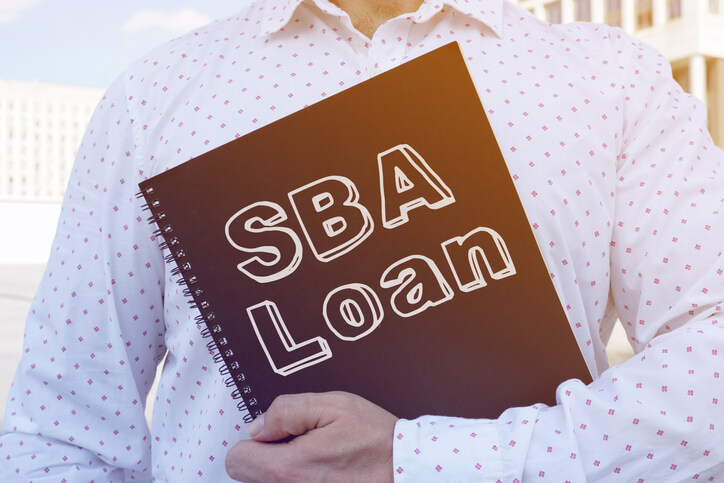What Is The Small Business Administration (SBA)?

If you are involved in the small business space, you have probably heard of the Small Business Administration (SBA) before. Even if you have a general idea of what the SBA is and how it works, we’re here to help you learn about the many opportunities and benefits it offers the small business community.
For those unfamiliar or looking to learn more about what the SBA is, this article is for you. We’ll be looking into what the Small Business Administration is, what they do, and how they support small business owners.
At its heart, the SBA is a government agency focused on helping the over 30 million small businesses in the United States grow and succeed. Since 1953, the SBA has offered entrepreneurs across the country assistance and resources including small business loans, contracts, counseling and more. The SBA is there to help the small business community create meaningful jobs, support local economies and give back to their neighborhoods.. They are a critical part of our country’s vitality.
So, What is the Small Business Administration?
As mentioned above, the Small Business Administration (SBA) is a government agency aimed at growing the economy through supporting the many small business owners who follow their entrepreneurial dreams in the United States.
The SBA defines their mission as igniting change and sparking action so small businesses can confidently start, grow, expand, or recover.
AT A GLANCE
What is the SBA?
- The only cabinet-level federal agency fully dedicated to small business and provides counseling, capital, and contracting expertise as the nation’s go-to resource and voice for small businesses.
Whether it’s through training programs or small business planners, the SBA dedicates itself to getting business owners what they need to elevate their businesses. This includes assistance with financing, education and training, government contracting, and being a voice in relative policy matters.
But how did the Small Business Administration come about?
The History of the SBA
The Small Business Administration came about as a result of the Small Business Act, which was passed in the summer of 1953 under the Eisenhower administration. The SBA started out giving direct business loans and guaranteed bank loans to small businesses.
Since its founding, the SBA has delivered millions of loans, loan guarantees, contracts, counseling sessions and other forms of assistance to small businesses.
What Does the SBA Do?
Now that we know roughly what the SBA is, let’s take a closer look at their services.
The SBA assists American small businesses in four main areas: financing, business guides and education, federal contracting, and local assistance. All of these efforts and focus areas are aimed at helping entrepreneurs and small business owners start and grow their businesses.
Financing
One of the most visible aspects of the Small Business Administration is its loan programs. It was one of the first main features of the agency, and remains an incredibly prominent service.
Types of Loans
SBA loans offered by CDC Small Business Finance and other mission-based lenders:
- 504: The SBA 504 is a long-term, fixed-rate, low down payment (only 10%) loan used to purchase commercial real estate, equipment machinery or other assets. The loan structure includes an SBA 504 lender, a bank and a down payment from the borrower. Click here to learn more.
- SBA Community Advantage: A working capital loan that can be used in multiple ways including buying, starting or expanding a business, purchasing equipment, tenant improvements and more. Click here to get the details.
- SBA Microloan: The smallest loan program, providing $50,000 or less to help businesses start-up and expand. Click here to learn more.
Additional loans offered by the SBA through other lender partners:
- SBA 7(a) Program: A group of SBA loans which guarantee portions of the total amount, cap interest rates, and limit fees.This program has several loans including: Express loan, CAPLines Loan, Export Loan, and Disaster Loan
Investment Capital – provided by an SBIC
Find an investor for your business through a Small Business Investment Company (SBIC) licensed by the Small Business Administration (SBA). The SBA doesn’t invest directly into small businesses, but it does provide funding to qualified SBICs with expertise in certain sectors or industries.
Disaster assistance – Provided directly from the SBA
The SBA provides low-interest disaster loans to help businesses and homeowners recover from declared disasters. The types of disaster loans are Physical damage loans, Mitigation assistance, Economic Injury disaster loans, and Military reservist loans. Learn more here.
Surety Bonds – provided by authorized surety bond agencies
Surety bonds help small businesses win contracts by providing the customer with a guarantee that the work will be completed. The SBA guarantees surety bonds for certain surety companies, which allows the companies to offer surety bonds to small businesses that might not meet the criteria for other sureties.
Grants – directly from either the SBA, states or community organizations
SBA provides limited small business grants and grants to states and eligible community organizations to promote entrepreneurship. Their small business grant programs include research and development and management and technical assistance. Learn more here.
Business Guides and Education
The SBA not only provides financing for small businesses, but they also provide the resources for them to succeed. They offer several business guides for each stage and educational programs for those looking to learn.
Plan your business
If you have a great business idea, the next step is to make a plan to turn it into a reality. The SBA helps small businesses do this through 5 key steps, providing advice and resources along the way. Learn how to do market research, create a competitive analysis, write a business plan, calculate start up costs, and more.
Launch your business
To turn your great business idea into reality, you must take the steps to launch your small business. The SBA helps provide the necessary steps to help you launch along with great resources. Check out all the steps here.
Manage your business
If your business is already up and running, the SBA is here to help you run it like a boss. They provide the steps to master day-to-day operations and prepare for success. Click here to get the full guide on how to manage your business.
Grow your business
If you are running a small business and business has been good, the SBA provides the necessary tools to help you expand. Find new funding, locations, and customers with these resources.
SBA digital learning platform
The SBA’s online learning programs are designed to empower and educate small business owners every step of the way. Whether you’re looking to start a small business or expand your current one, SBA’s digital learning platform has everything you need to educate yourself on entrepreneurial best practices and available financing options.
They offer free online courses that teach prospective and current business owners how to plan, launch, manage, market, and grow their enterprises. Each portion of the online course has at least 25 different tasks, allowing for a comprehensive introduction to business administration.
The SBA also offers educational programs that are focused on specific demographics:
- Women business owners: The Ascent for Women online program provides female-centric resources for women looking to start their own business.
- Military service members and spouses: Boots to Business provides entrepreneurial education and training for service members looking to start a new life in the homeland.
- C-level executives in underserved cities: T.H.R.I.V.E. Emerging Leaders Reimagined seeks out promising small businesses to accelerate their growth.
Federal contracting
The SBA plays a large part in connecting small businesses with government contracts opportunities.
This includes helping smaller enterprises win a share of federal contracts while qualifying for exclusive set-aside and sole-source contracts. They also allow business owners to connect with other established contractors to improve their odds.
As part of the educational program suite, the SBA helps business owners secure these contracts to better finance their enterprise. This is done through contract-specific courses that teach business owners how the system works:
- Contracting guide: The federal government contracts with small businesses to buy products and services. Click here to see how you can get started.
- Contracting assistance programs: The federal government uses special programs to help small businesses win at least 23 percent of all federal contracting dollars each year. Click here to explore the programs.
- Counseling and help: Whether you’re trying to win your first government contract or you’re an experienced contractor, the SBA and its partner organizations can be valuable resources. Click here to get help.
Local assistance
The SBA works with a number of local partners to counsel, mentor, and train small businesses. Check out the different areas that the SBA provides help below.
SBA offices and resource partners
SBA District Offices offer counseling, training and business development to help you start and grow your business. This also includes community navigators that strengthens outreach to underserved businesses by partnering with community organizations to help those hit hard by COVID-19.
Federal contracting assistance
PTAC (procurement technical assistance centers) assist businesses that want to sell products and services to federal, state, and/or local governments. Click here to find procurement technical assistance.
Access to capital
CDC’s (Certified Development Companies) are nonprofit corporations certified and regulated by the SBA that provide financing to small businesses. Click here to find a CDC near you. The SBA also has Disaster Field Offices that offer counseling and financial assistance to those who are rebuilding their homes and businesses after natural disasters.
Before obtaining a loan – learn more about what a CDC is here.
Export and trade assistance
The U.S Export Assistance Center provides export assistance and makes worldwide commerce achievable for small or medium-sized businesses. Find an Export Assistance Center.
Resources
The SBA is a great resource center for small businesses. It aims to provide programs that focus on helping small businesses succeed:
- Women’s business centers: WBCs provide free to low-cost counseling and training and focus on women who want to start, grow and expand their small business.
- Veteran outreach: Designed to provide entrepreneurial development services and referrals for eligible veterans owning or considering starting a small business.
- SBDC’s: A network of centers that provide counseling and training to help small business owners start, grow and expand their business.
- SCORE: Volunteer business counselors, advisors, and mentors who offer individual free to low cost counseling throughout the U.S. and its territories.
How the SBA Helps Small Businesses Start & Grow
If you’re interested in contacting the SBA to help start your business, there are a few things you need to know going in. The steps listed below towards growing your business aren’t one-size-fits-all., These give you a general idea of how the SBA’s valuable tools can help you on your path to success.
Writing a Business Plan
Having a strong business plan is crucial to not only launching a successful business, but also getting contracts and loans from financial institutions or the government. It’ll help you map out future expansion plans and illuminate development and financing opportunities.
The SBA offers business planning courses and workshops for how to write an effective business plan.
Research and Statistics
Whether you want to scope out the competition or find facts that can lead you towards an effective marketing strategy, research and statistical analysis is often necessary when launching your business.
The SBA offers plenty of reports curated by the Office of Advocacy to help you in this endeavor. They routinely update their archives to help you understand your place in the American economy.
Classifying a Business and Funding
Classifying your business and identifying your structure can help you find unique funding sources.
Depending on who you are and which demographics you occupy, you might be able to find specific funding sources.
Tax Resources
Small businesses have tax obligations just as any other enterprise. State, local, and federal taxes all vary and can be complex for newcomers. The SBA helps you sort these details through their education programs and provide advice on navigating this complex field.
SBA provides Advocacy For Small Businesses
The SBA also has an Office of Advocacy that aims to give small businesses a voice in today’s marketplace. The Office of Advocacy conducts a variety of different services to help push for business owners’ place in the American economy.
This includes extensive research and reporting on the latest business trends and factors affecting small business ownership in the U.S.
They gather state profiles to help individuals from every state understand what’s going on in their areas, while preparing economic reports to better educate the public. They also have a library of resources connecting small business owners to specific agencies, reports, and data to improve their understanding of their place in the economy.
The SBA’s Office of Advocacy also keeps a constant pulse on what’s going on in the Hill, meaning they engage in regulatory discussions to better understand how they can improve small business owners’ rights and visibility.
Leverage the Small Business Administration’s Services Today
The SBA has aided millions of business owners since its founding in 1953. Whether you’re looking to secure funding or just want to learn more about being a business owner in the U.S., the SBA offers plenty of resources to make your small business dreams a reality.
If you are in our areas of service and want to learn more about CDC Small Business Finance and our offerings, please visit our loan pages on SBA 504 Commercial Real Estate (offered in California, Arizona and Nevada) or Working Capital Small Business loan (offered across the country including in California, Arizona, Nevada, Atlanta GA, Dalla-Fort Worth TX, Detroit MI, Miami FL, and Washington, D.C. Metro).




